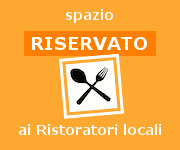Parco della fascia fluviale del Po - tratto Cuneese
Batiaje
The etymology of Batiaje, corn meal pastries characteristic of the upper Po Valley, could be the same of Batiùr: as a matter of fact,
like the boiled salami, these cookies were eaten on the occasion of a christening. There is also
another explanation, more complex, according to which the term derives from the
Arab "bat-jha" (meaning "little sun") transforming these biscuits into a Saracen
inheritance coming at least five centuries before the discovery of America:
according to this hypothesis, the main ingredient - corn - would have been imported from the East before its arrival from America.
In Batiaje, as in all pastries made with corn meal (meliga in dialect), there is always a percentage of white flour; however, they acquire the bright yellow color of corn, strengthened by the presence of eggs and butter. The cookies, very crumbly, are round or horse-shaped, have a high caloric content and an unmistakable taste. They are usually eaten together with a glass
of Moscato; there is also the less traditional combination with
zabaglione.






